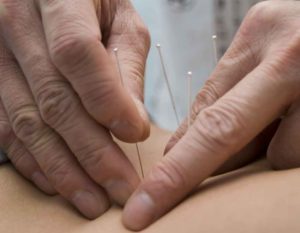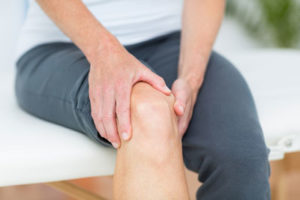An article published by Carolyn Crist of Reuter’s Health on March 11, 2019 summarizes a research review published in the British Journal of Sports Medicine analyzing the effects of the addition of hip exercises on walking, and pain for people with knee arthritis. The researchers used a collection of data from eight clinical trials involving a total of 340 patients which showed that patients with knee arthritis can also benefit from the addition of hip strengthening exercises that involve the use of elastic bands or weights to “improve the ability to walk and maybe reduce pain”.
Andrew Hislop, the lead author stated “despite knowing that exercise is beneficial, what type of exercise should be included in a thorough exercise program remains largely unknown”. Hislop informed Reuter’s health there would be an increase demand in health care to manage knee osteoarthritis with an increasing population.

When analyzing the gathered data, researchers focused on investigating how the addition of “resistance weight-lifting, functional neuromuscular exercises such as single leg squats or stepping, and so-called multimodal exercise that combined these two” to a current regimen impacted aspects of knee and walking form, pain, and quality of life.
The researchers concluded the addition of hip strengthening exercises alone “significantly improved walking function”, however, it “did not have a statistically meaningful effect on pain, stair function, or the ability to stand from a sitting position”. Although, when the exercises were evaluated individually, it was found that resistance exercises were more effective than functional neuromuscular exercises in improving knee pain and functioning.
Read the full article here.
Acupuncture has a significant effect in about 70 percent of painful diseases. Click to watch the video to find out how to relieve your pain with Medical Acupuncture.
<iframe width=”640″ height=”360″ src=”https://www.youtube.com/embed/L0M-L4TBGT8″ frameborder=”0″ allow=”accelerometer; autoplay; encrypted-media; gyroscope; picture-in-picture” allowfullscreen></iframe>
Researchers from China Medical University, in Taiwan, evaluated data from the Taiwanese National Health Insurance Research Database to assess whether acupuncture decreases the risk for CHD in fibromyalgia patients. The investigators initially identified 189,512 patients with a new fibromyalgia diagnosis between Jan. 1, 2000, and Dec. 31, 2010.

These patients were then separated into an acupuncture cohort (n=81,843; patients who received acupuncture from their initial diagnosis of fibromyalgia to Dec. 31, 2010) and a no-acupuncture cohort (n=76,582; patients who never received acupuncture during the study period). The final analysis included 58,899 patients from each cohort after researchers performed 1:1 propensity score matching.
They found that overall incidence of CHD was significantly lower in the acupuncture group (adjusted hazard ratio, 0.43; 95% CI, 0.41-0.45).
“The beneficial effect of acupuncture on the incidence of CHD was observed in both female and male patients,” the study authors wrote. They noted that the risk for CHD gradually increased with age, and acupuncture significantly decreased the incidence of CHD in all age groups and “decreased the risk of CHD in patients with fibromyalgia with or without comorbidities.”
Researchers reported that 4,389 patients in the acupuncture cohort (17.44 per 1,000 person-years) developed CHD during the follow-up period compared with 8,133 patients in the no-acupuncture cohort (38.36 per 1,000 person-years).
“Regardless of whether patients took oral steroids, NSAIDs [nonsteroidal anti-inflammatory drugs], or statins, fewer patients in the acupuncture cohort developed CHD than in the no-acupuncture cohort,” they wrote.
The investigators speculated that acupuncture decreases CHD in fibromyalgia due to the inhibition of N-methyl-D-aspartate receptor, 5-HT3 receptor, or the mechanisms of acupuncture including antidepression, anti-inflammation and improvement of sleep quality.
The investigators noted that study limitations include a lack of specific patient information such as fibromyalgia severity and lifestyle. They said more clinical and mechanistic studies are needed.

Painkillers considered harmless by the general public are associated with increased risk of cardiac arrest, according to research published today in the March issue of European Heart Journal – Cardiovascular Pharmacotherapy.
Non-steroidal anti-inflammatory drugs (NSAIDs) are among the most commonly used drugs worldwide and some, including ibuprofen, are available over the counter.
“Allowing these drugs to be purchased without a prescription, and without any advice or restrictions, sends a message to the public that they must be safe,” said author Professor Gunnar H. Gislason, professor of cardiology at Copenhagen University Hospital Gentofte, Denmark. “Previous studies have shown that NSAIDs are related to increased cardiovascular risk which is a concern because they are widely used.”
Use of any NSAID was associated with a 31% increased risk of cardiac arrest. Diclofenac and ibuprofen were associated with a 50% and 31% increased risk, respectively. Naproxen, celecoxib and rofecoxib were not associated with the occurrence of cardiac arrest, probably due to a low number of events.
“The findings are a stark reminder that NSAIDs are not harmless,” said Professor Gislason. “Diclofenac and ibuprofen, both commonly used drugs, were associated with significantly increased risk of cardiac arrest. NSAIDs should be used with caution and for a valid indication. They should probably be avoided in patients with cardiovascular disease or many cardiovascular risk factors.”
“Do not take more than 1200 mg of ibuprofen per day,” he continued. “Naproxen is probably the safest NSAID and we can take up to 500 mg a day. Diclofenac is the riskiest NSAID and should be avoided by patients with cardiovascular disease and the general population. Safer drugs are available that have similar painkilling effects so there is no reason to use diclofenac.”
Professor Gislason concluded: “The current message being sent to the public about NSAIDs is wrong. If you can buy these drugs in a convenience store then you probably think ‘they must be safe for me’. Our study adds to the evidence about the adverse cardiovascular effects of NSAIDs and confirms that they should be taken seriously, and used only after consulting a healthcare professional.”

According to Kate Rockwood, writer for O, The Oprah Magazine, in her article on the Huffington Post, creaky knees don’t have to be your destiny. Jordan Metzl, MD, a sports medicine physician at the Hospital for Special Surgery in New York City and author of The Exercise Cure suggests minimizing wear and tear on joints and tendons by strengthening the surrounding muscles. “Your body is like one long kinetic chain—every joint and muscle impacts how the surrounding parts move,” Metzl says.
Fortify these vulnerable places: Knees; Achilles Tendons; and Shoulders, and you’ll feel a lot stronger.
It might surprise you to learn just how much humidity can affect our bodies, says , writer for the Huffington Post. He explains that our joints contain sensory nerves called baroreceptors, that respond to changes in the weather. For example, when the weather is rainy and damp, the barometric pressure drops, causing our tendons, ligaments, and muscles to expand. However, for those who already have muscle or joint pain, expansion in the muscles, tendons, and ligaments can irritate the already-sensitive areas.
High humidity levels can eventually lead to a loss of body fluid and dehydration. Joint cartilage and the discs in our spine have high water content, and dehydration can decrease the concentration of fluid, agitating any arthritis that may be present.
Along with drinking lots of water, read the full article to find out what you can do to ease the effects of humidity.
